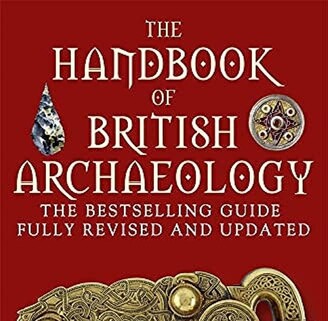

Regardless of David’s original intentions, he is being victimised for exposing war crimes. There is nothing just in his incarceration.


Regardless of David’s original intentions, he is being victimised for exposing war crimes. There is nothing just in his incarceration.
At least in CWD-causing prions, plant accumulation is significant enough for the plants to be infectious when consumed by mice in a lab setting. So, maybe?
https://www.usgs.gov/publications/plants-vectors-environmental-prion-transmission
Treating somebody poorly, purely for spite or some form of retaliation, seems like a lot of unnecessary energy to expend on somebody who may not deserve that much space in your mind. The golden rule is not about whether someone has the right to be treated better than they have you, it is about discovering grace within yourself and extending it towards all others.
As to why you should, I could use another turn of phrase- “Lead by example”. You had a poor example in how to extend grace to others in the form of your teachers, and you have the opportunity to be a positive example to others in their place.


With bonus suffering!


Ah yes, the famous Soviet era of the United States. How could I forget?


It was a US made Bell 212


Yeah cool, here’s one good thing we can do to make a positive change but fuck doing it because of the other, completely unrelated thing, right?


Or if you’re up in the top end, there’s Nawarla Gabarnmung which dates to about 44kya. Some natural rock pillars in the shelter, others modified and others still constructed or relocated.


Could you use a command strip or something?


Yeah, but how do you propose I take my van to Fraser Island once a year to drive over turtle nests? That ute that I claim under tax because it’s for “business use only” is a necessity!
/s
deleted by creator


They are saying that in this particular opinion piece focussed on this particular topic, yes. It’s disingenuous to argue they only speak out for Muslim heritage when you could easily search their site and find many reports and commentaries on the destruction of historical sites all over the world.
It’s gotta be something from Our Kylie;
Kylie Minogue - Padum Padum https://youtu.be/p6Cnazi_Fi0?si=2gK5W93-kGwL4elZ
Does the song need to be of the past 12 months, or any Australian song?


Basically yes. Mentions of an ‘Arthur’ are scarce before Geoffrey of Monmouth’s (heavily fictionalised) 12th century account of him, and most depictions of him as the Britthonic warlord defending against the invading Saxons seem to be based upon Ambrosius Aurelianus. Couple that with zero archaeological evidence for him at his claimed birthplace of Tintagel and you can see how many are sceptical.


"And that’s not because ancient Romans and Greeks weren’t living to a ripe old age.
Per the article: “While average life expectancy before the common era was roughly half of what it is today, the age of 35 was hardly considered ‘old’ for the time. The median age of death in ancient Greece was, by some estimates, closer to 70 years, which means that half of society was living even longer than that. Hippocrates himself, the famous Greek physician and so-called father of medicine, is thought to have died in his 80s or 90s.”


Great timing, thanks for posting. I’m beginning my own journey with a Bachelor of Archaeology today with equal parts excitement and apprehension.
The police marching at Pride or the protesters?
If you haven’t heard it before, please listen to the song “The Band Played Waltzing Matilda” by Scottish-Australian songwriter Eric Bogle. That song, as well as “I Was Only 19” by Redgum, perfectly encapsulates the reason for the memorials.
The songs do not glorify our success as a military nation, nor do they portray the soldiers they are about as grand heros or defenders of freedom. They are about very young men, sent away by their country to experience unimaginable horror and suffering, only to return to a home with, at best, minimal support and, at worst, the shame of the community they once were a part of.
Each name on each of those memorials- thousands of them- represent an experience of the unimaginable, and a family irreparably changed. They are a reminder of what was taken, and of the sorrow that was caused. I do not see them as prideful, celebratory or reverential, and I do not know of anyone who does. They are a commiseration.
With regards to ANZAC, and it’s place in Australian culture, you are essentially looking at modern Australia’s foundational myth. In the 1950s and 1960s when Australia was having its own civil rights moment, the original foundation myth of terra nullius and the “brave”, white settlers conquering an untamed land finally began to feel too untrue to most Australians, too much like a myth. Colonial Australia needed a new explanation for its existence and it is around that time that the Gallipoli campaign started to be promoted by various historians and authors as Australia’s “coming of age” as a nation.
The intention was to give (white) Australians a point of reference for themselves, something they could point to and say “the things that we are, this is where they came to be”. Qualities like mateship, camaraderie, larrakinism, hard work, disdain for authority or aristocracy and resilience in the face of adversity. Those were the qualities promoted as being cemented in the national psyche at ANZAC Cove. It is a manufactured narrative, but those writers were very successful, as you can see.
There’s more that can be said for Australia treats it’s narrative history, especially that of Aboriginal and Torres Strait Islanders, but that’s better left for another (long) post. If you’re interested in how Australia viewed it’s two competing foundational stories in the 1990s and 2000s, and how it effects the way we talk about our history today, look up the History Wars. Let me know if you think there was a winner.